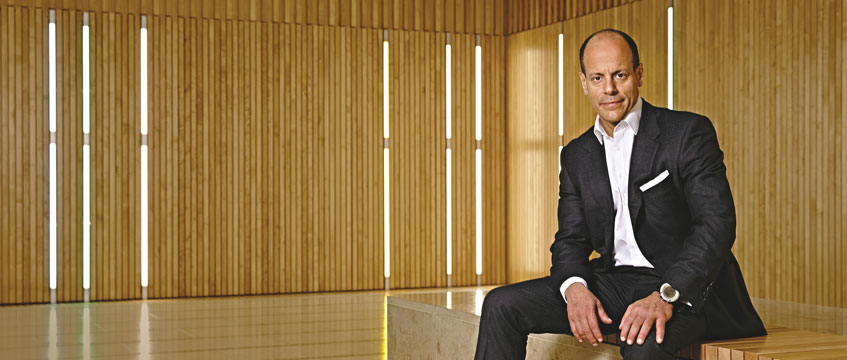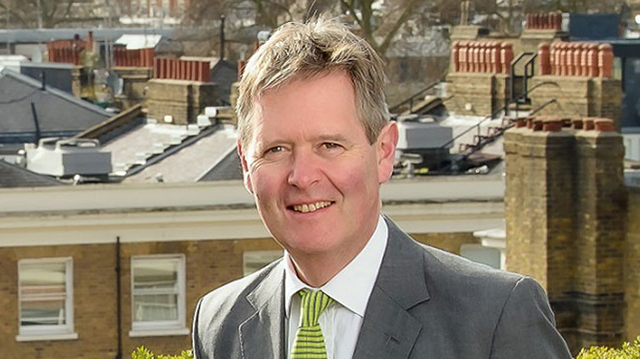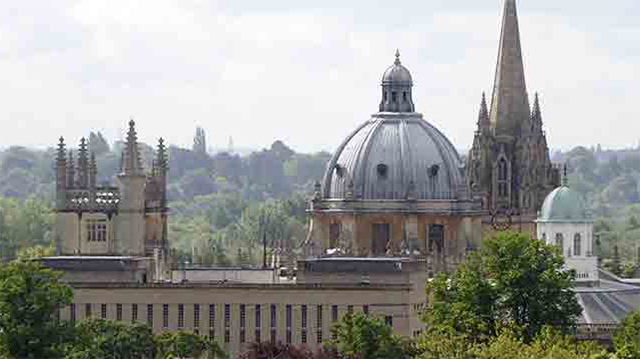This week, MPs will debate one of the most controversial pieces of legislation being pushed through by the Labour government – the Gambling Bill.
The commons standing committee will try to reconcile two distinctly opposing views. While culture secretary Tessa Jowell and prime minister Tony Blair argue that the reforms will bring billions of pounds of investment to major cities and regeneration to run-down areas, opponents fear that the bill will turn the UK into the Nevada of Europe. But both could be wrong.
That would not just be a disaster for the government. A defeat would also stymie the ambitions of the (mainly) US gambling giants seeking new markets in the wake of the Bush administration’s crackdown on gambling — not to mention those of a property industry keen on reaching partnerships with the casino operators.
But fears over a deluge of massive gaming establishments, each with thousands of big money one-armed bandits as well as restaurants and hotels, could be unfounded. Far from the 240 super-casinos predicted by the more excitable tabloids, operators are saying there could be no more than a handful, whatever the government decides to do.
A spokesman for Hilton, the hotel chain which is considering opening a resort casino in Blackpool only three years after selling its casino portfolio, said: “We believe that there is scope for a limited number of destination casinos, between four and six, and they should emerge on a pilot basis.” The news will please casinos’ opponents, but is less likely to cheer the towns, developers and landowners, including cash-strapped football clubs, that are relying on the cash injection that a nearby regional casino would bring. So far, at least 35 proposals for mega-casinos have emerged, with more to follow.
At the heart of the Gambling Bill is the proposal to permit high-paying resort casinos – in the style of Las Vegas, Sydney or South Africa – to come to the UK. According to the bill, these regional casinos must have a minimum size of 54,000 sq ft, and will be the only locations in the country where the previously banned high-stake, high-payout “category A” slot machines would be permitted.
One-armed bandits curbed
Returns on gaming tables are minimal in comparison with these machines. Put simply, they are the only reason why companies such as Kerzner or MGM Mirage are talking about investing in the UK. If the government caves in to casino opponents and cuts the number permitted – currently 1,250 per casino – schemes across the country could be doomed.
Ken Knott, managing director of ASK Developments, responsible for the 850,000 sq ft Sports City scheme in east Manchester, says: “The 65,000 sq ft casino set within the scheme is crucial. Without that component, we would not have the investment platform to deliver the rest of the scheme.”
The property industry has been aware of the potential of this revenue stream, and the security of the covenant behind it, for some time. One such development planned for the new Coventry City football ground, masterminded by Las Vegas Sands, consists of a 153,000 sq ft underground “box” with 1,000 slot machines, three restaurants, 30 gaming tables and a cabaret stage.
The annual revenue of a US destination casino can exceed £100m. Compare that with construction costs of just £6m, throw in the – rather more costly – £28m fit-out and the lure for developer/investors is apparent.
Some developers and operators, such as Peel Holdings and MGM Mirage, have now set up long-term partnerships to exploit the potential rewards.
As a consequence, almost every new major mixed-use scheme proposed for Britain’s main centres now has a casino at its heart. There are five proposals for regional casinos in Glasgow alone; Sheffield (see box) has three.
Some MPs are calling for a limit to the number constructed. But Rob Howarth, director at Jones Lang LaSalle, explains: “It is quite difficult to put a limit on the number of casinos, so the only thing they can do is make planning more demanding. This also means the price of good sites will increase.”
Only a lucky few
Even if demand is high enough, and opponents do not succeed in hobbling the bill, it looks like few regional casinos will ever be built. Chris Warren, head of leisure at Cushman & Wakefield Healey & Baker, says: “Even if the bill isn’t slowed down, or if it comes through in a different form at around Easter, the Gambling Commission won’t be able to consider licence applications for at least nine months after that.
“And for regional casinos, it’s a two-year build period, on top of which you need planning permission and the completion of the relevant regional spatial strategy. No region is even close to producing an RSS. The earliest that you will see these casinos is 2007.”
Meanwhile, the ODPM is working on a revision to planning policy statement 6 (PPS6) which early next year should provide planners with some guidance on how to treat casino applications. Until then, local authorities will have to treat out-of-town casino applications like any other, and ask whether there is a suitable town-centre site. This sequential test will be particularly pertinent because the government has said that it will create a separate use-class for casinos, in order to prevent bingo halls or swimming pools – currently in the same use-class – from converting to casinos.
Row over locations
But the policy context means that most will be called in by deputy prime minister John Prescott, who is known to favour confining regional casinos to urban regeneration areas. This approach directly clashes with the desires of operators, who want car-borne out-of-town locations in affluent areas. Some MPs are even known to prefer the operators’ choice of location — on the basis that gamblers would have to make a definite effort to play.
Added to this is the nimby factor. All the schemes will have to obtain both planning consent and a licence from the Gambling Commission and that means they will need to go out to public consultation and get the community on their side. Public disapproval could set back both decisions.
Because of these hurdles – and the limited size of the UK market – commentators argue that few regional casinos will ever be built. While this view may come as a big disappointment to the cities and football clubs that have latched on to casinos as a new regeneration panacea, it is good news for the big players, who would like a virtual monopoly.
Neil Murphy, development director of Sun International, says that, along with “high, European-style tax rates”, “the biggest problem is the danger of proliferation, which would be a threat to any investment”.
Each week brings another flurry of casino schemes. But, because of the uncertainty and media hyperbole, operators are playing their cards close to their chests. A spokesman for Hilton says: “We’re monitoring legislation closely and won’t proceed unless we’re sure the business can generate a revenue stream.”
A spokesperson for Kerzner, meanwhile, says: “It is too early for us to comment on any of our developments” until it has been told the “entire scope of decision by parliament, planning and city councils and local authorities”. And that could take some time.
|
|
|
|
|
Earl’s Court Olympia (MGM Mirage/ Earl’s Court Olympia) Millennium Dome (Meridian Delta/Kerzner) Wembley (Kerzner/Quintain) West Ham United (Las Vegas Sands) White City (Aspers/Chelsfield) |
|
|
|
Arena Central (Kerzner/Arena Central Developments) Birmingham NEC (tendering) |
|
|
|
Merry Hill (Aspers/Chelsfield) |
|
|
|
Hilton (possibly) Pleasure Beach (Hyatt) |
|
|
|
Bournemouth Pavilion (no definite operator) |
|
|
|
Sports Village (Bidding under way) |
|
|
|
The Brewery (Aspers/Salmon Harvester) |
|
|
|
Coventry City (Isle of Capri) |
|
|
|
Glasgow Harbour (Peel/MGM Mirage) Ibrox (Las Vegas Sands) St Enoch’s East (Stannifer/Miller) SECC (Glasgow/Kerzner) Springfield Quay (London Clubs International) |
|
|
|
Clarence Dock (London Clubs International/Crosby) Leeds United (Stanley Leisure) |
|
|
|
Kings Waterfront (Peel/MGM Mirage) |
|
|
|
Great Northern Leisure (LCI) Salford (Peel/MGM Mirage) Salford RFC (Las Vegas Sands) Sports City (ASK/Kerzner) |
|
|
|
Newcastle United (MGM Mirage) |
|
|
|
Portsmouth FC (Las Vegas Sands) |
|
|
|
St Helens RFC (Gala Harrah’s) |
|
|
|
Don Valley (Sun International/ Sheffield International Venues) Meadowhall (MGM Mirage/British Land) Sheffield United (Las Vegas Sands) |
|
|
|
West Quay (Ameristar/Bravo) |
|
|
|
Salubrious Place (Aspers/Brunswick Mansford) |
|
Please note that this list is not intended to be comprehensive |
|
|
|
Sheffield has a population of 500,000 earning an average wage of £400 per week – and proposals for three giant casinos. Las Vegas Sands, MGM Mirage and Sun International – three big names in the gambling world – have proposals at Sheffield United’s ground, British Land’s Meadowhall scheme and Don Valley Stadium respectively. The fact that the city has seen more interest from casino operators than Newcastle, Liverpool, Edinburgh and Nottingham combined has bemused its planning department. The two stadium applications have been put in, and Meadowhall is expected to follow next month. Les Sparks, head of planning, says: “We are keeping a close watch on emerging guidance. At the moment, we have to judge them against PPG6, which suggests they’re town-centre uses. But we’ll assess the proposals in terms of their regeneration benefits too.” “When we come to making a decision, we won’t have the benefit of an up-to-date regional spatial strategy, which is the place where forward thinking should have been done on how many and where.” “So we are faced with three operators, which all have different views on the capacity of the marketplace. We’ll have to ask how many casinos does Sheffield need? The answer could be pretty obvious. “If they were all in the centre, we might grant several permissions. But they’re all tight judgments because they’re all out of town.” |










